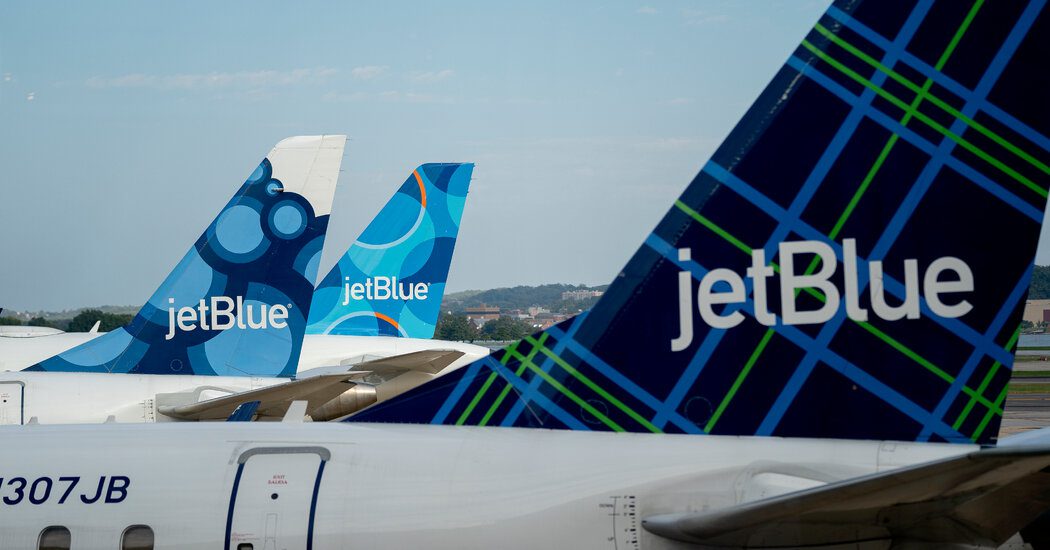Smaller airlines that operate in the shadow of the nation’s four dominant air carriers are increasingly feeling pressure to merge with each other to gain access to more planes and airport gates.
Those dynamics were on display in a federal courtroom in Boston on Tuesday where JetBlue Airways tried to persuade a judge to let it buy Spirit Airlines for $3.8 billion. It was also at play this past weekend when Alaska Airlines proposed acquiring Hawaiian Airlines for $1.9 billion.
The outcome of these acquisitions could be pivotal for the companies and the U.S. airline industry, in which four companies control more than two-thirds of the national market and exert dominance over big airports in places like Atlanta, Dallas-Fort Worth and Newark. If one or both mergers are approved, the deals would be the largest in years.
The last major wave of airline mergers ended when American Airlines combined with US Airways in 2013. In addition to American, the industry is now dominated by Delta Air Lines, United Airlines and Southwest Airlines. Each of those companies controls so many gates and takeoff and landing slots at their hub airports that they are unlikely to ever lose more than a small percentage of travelers flying to and from those cities. Bigger airlines also generally pay less for planes and other equipment because their size allows them to negotiate better deals.
“The power of size in this industry is tremendous,” said Christopher Raite, a senior analyst at Third Bridge, a research firm. “There are just these inherent advantages that size gives you.”
The dominant position of the big four airlines featured prominently in the arguments JetBlue made refuting a federal lawsuit brought by the Justice Department against its acquisition of Spirit. In his closing arguments in the case on Tuesday, Ryan Shores a lawyer for JetBlue, said that smaller airlines “need the network breadth to able to compete with the larger airlines.”
The Justice Department’s lawyer, Edward Duffy, countered that the sale would eliminate a small but important source of competition. Spirit typically sells tickets for less than JetBlue and other airlines. And more than 135 million airline passengers a year would suffer if Spirit was no longer helping to push down fares on the routes that those travelers fly. By acquiring it, JetBlue would turn into the very kind of market-dominating giant that it says it want to compete against.
After buying Spirit, JetBlue would have a market share…
Click Here to Read the Full Original Article at NYT > Travel…
